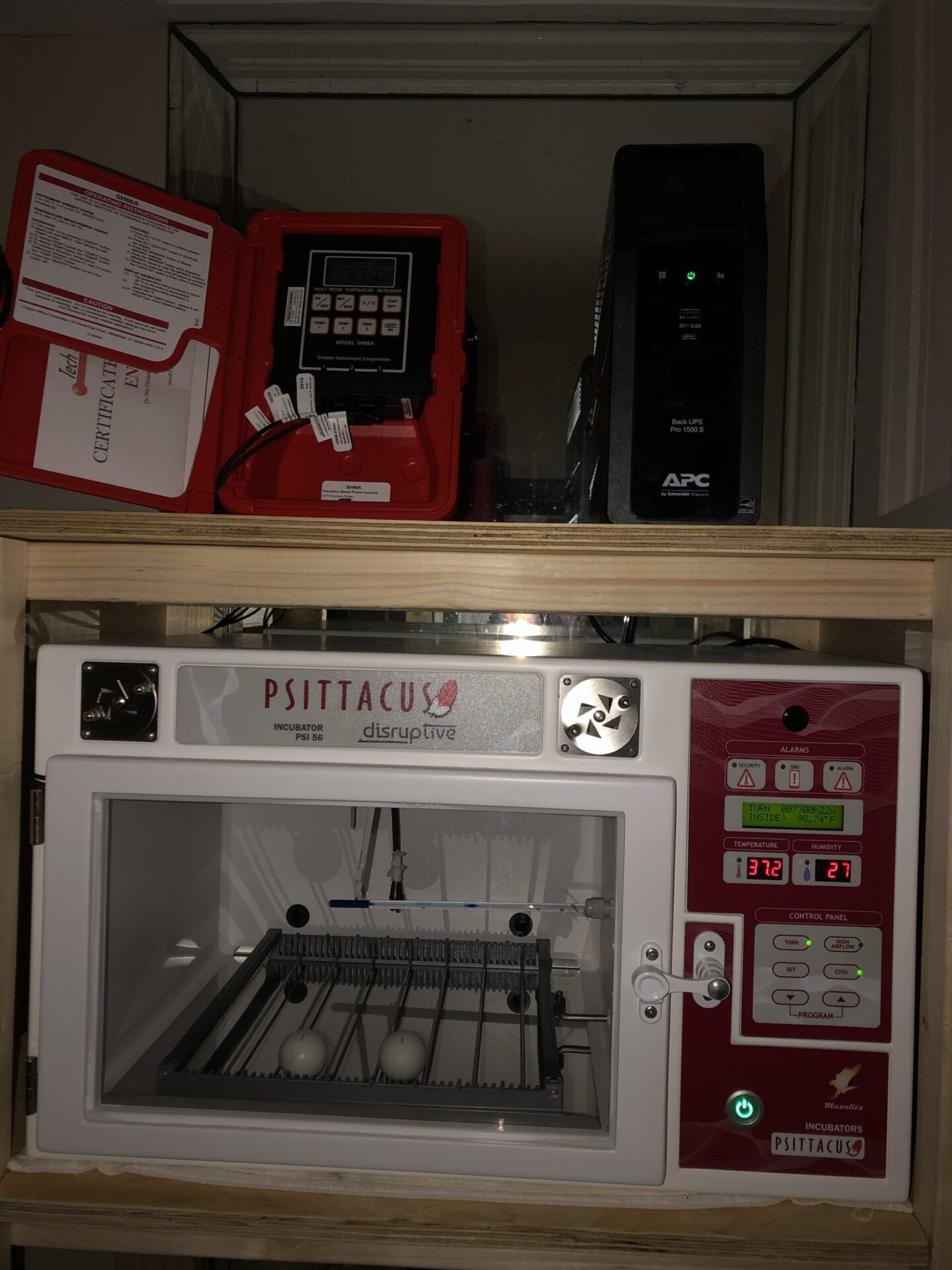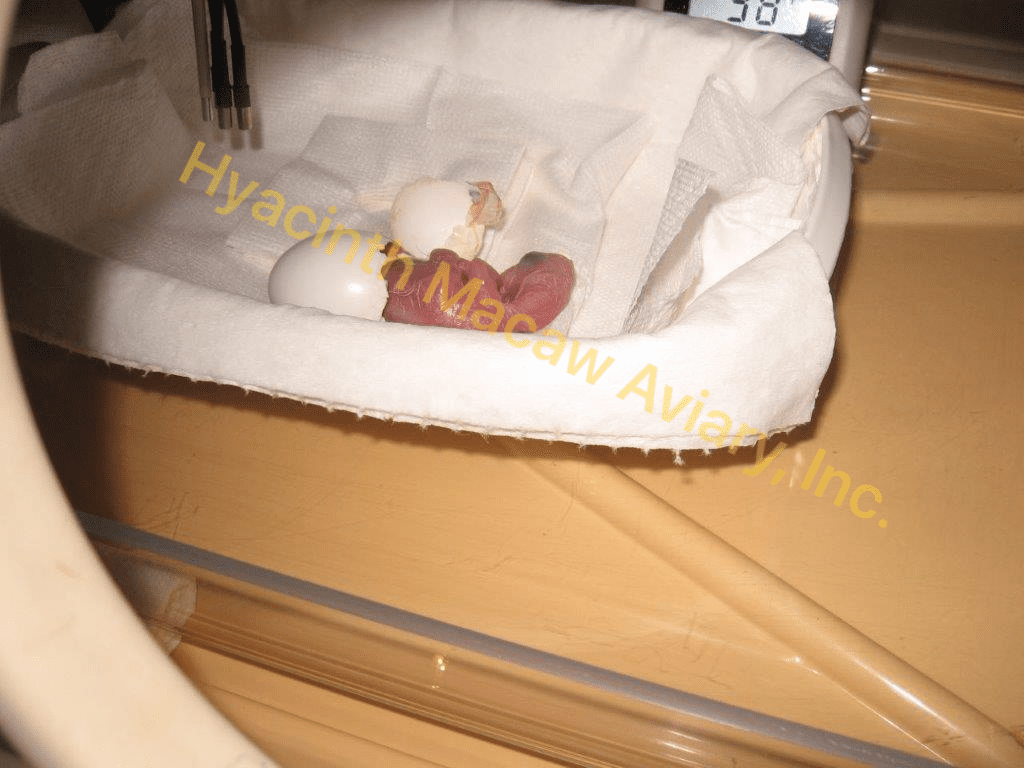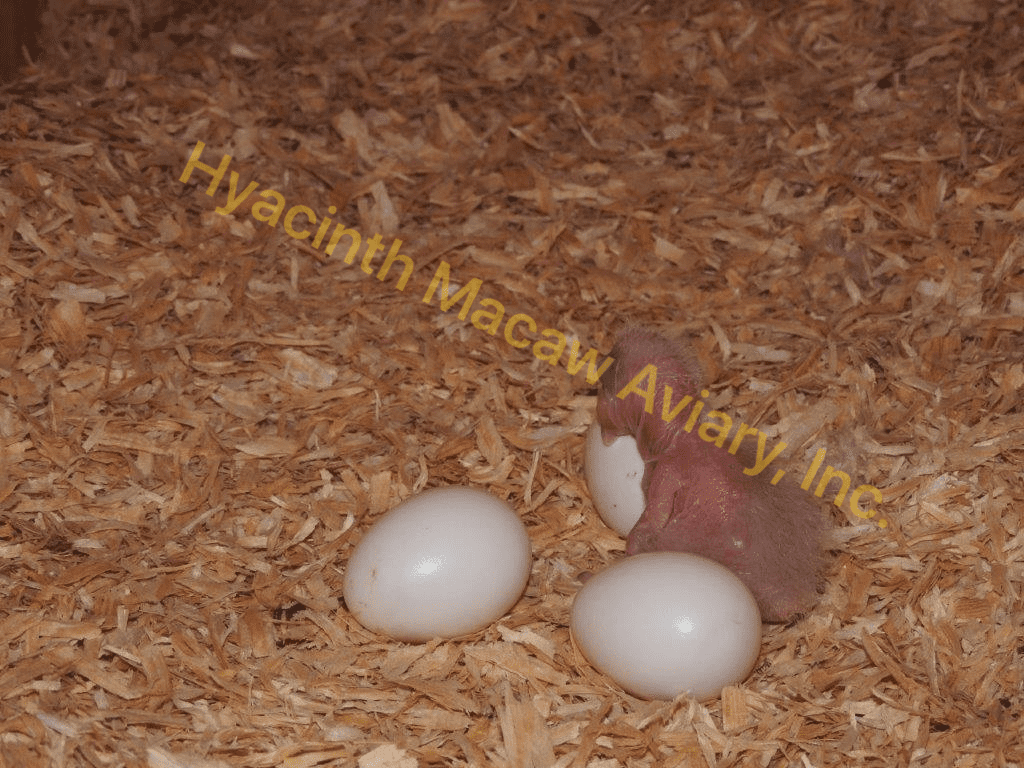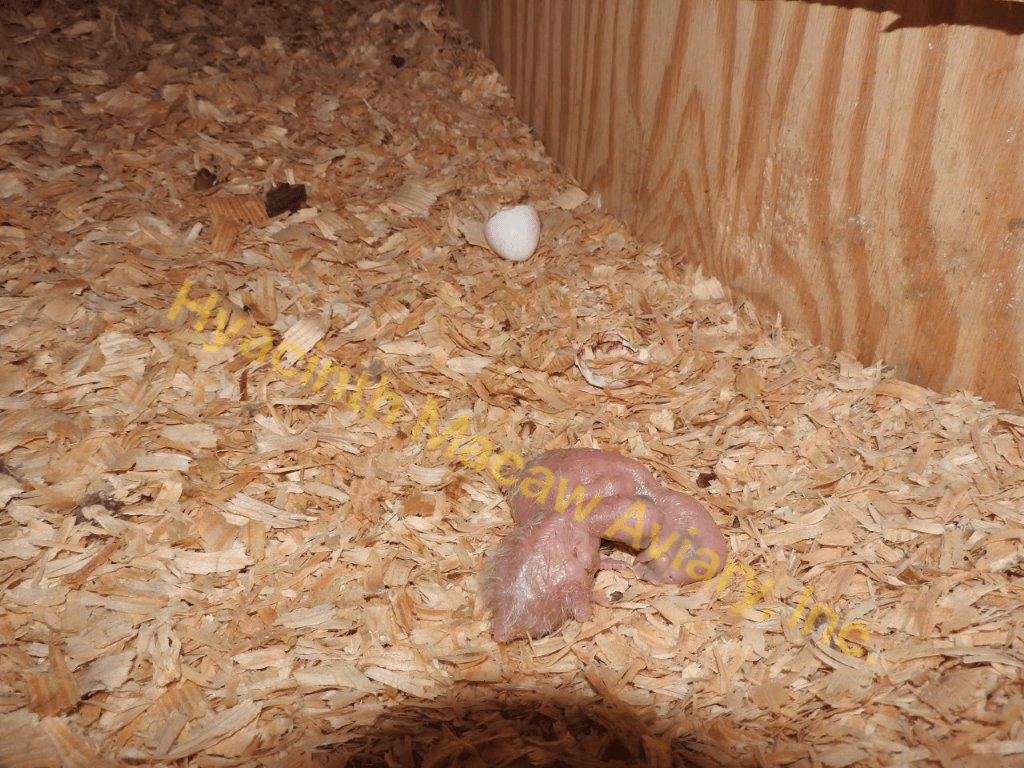Proper Incubation Procedures for Hyacinth Macaw Eggs
In 2012, we reorganized and changed our name, but the owners remain the same. We will continue to offer a limited number of weaned babies. We will also continue to be dedicated to our new flock, conservation work, and dealing with legislative matters. To our valued customers, thank you for your support over the many years.
Not Your Typical Egg
Hyacinth Macaw eggs are more sensitive to outside influences than most other eggs. Normal incubating procedures that work well for other Macaws will oftentimes not work as well for Hyacinth Macaws.
We have incorporated DNA genotyping of our breeding stock in order to eliminate relatedness issues which are common with Hyacinth Macaws. Proper conditioning of the parents is necessary in order to achieve consistent success at yielding strong, fertile eggs.
A proper diet is crucial as well as a proper environment. Outside distractions tend to reduce egg production as well as increase infertility. Improper diet can generate weak embryos and/or improper shell thickness.
Health issues with the parents can be passed on to the embryo, thus hindering the development process. When appropriate, leaving viable eggs with the parents for a period of time seems to increase the hatch rate, however, it has been our experience that leaving them too long tends to have the opposite effect here in South Florida.
Factors we use to help determine the time to move the eggs to an incubator include outside air temperature, humidity, distractions, parenting habits, weather events, etc. We have found that controlling certain factors once the eggs are pulled has increased our hatch rate tremendously. Temperature level and fluctuations, humidity, noise levels (outside and incubator generated), vibration, frequent handling or candling, sanitation, and parent DNA compatibility are some factors that can influence hatch rate.
We normally exchange our fertile eggs with blank eggs or live silky chicken eggs. This allows us the opportunity to reintroduce an egg that is nearly hatched or a newly hatched baby to the parents (or foster parents). This passes the hourly feedings necessary for the first several days on to the parents and also tends to strengthen the immune system of the chick.






